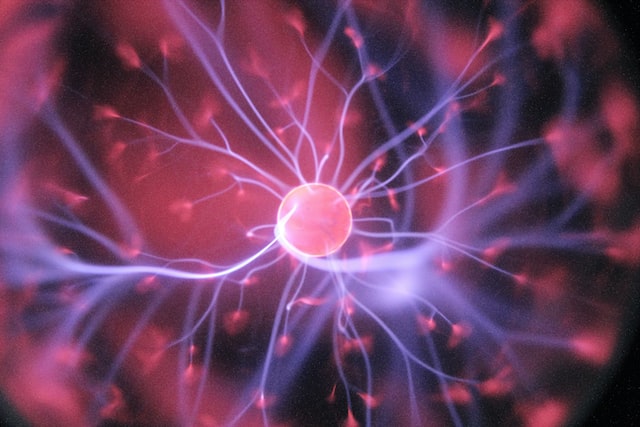Has Depression Begun To Negatively Impact Your Quality Of Life?
 Have you felt unfulfilled, uninspired, and generally out of sorts for long periods? Do the activities you once took pleasure in now feel like chores? Is your low mood affecting your focus and how you interact with the world?
Have you felt unfulfilled, uninspired, and generally out of sorts for long periods? Do the activities you once took pleasure in now feel like chores? Is your low mood affecting your focus and how you interact with the world?
Perhaps you often feel unmotivated and have lost interest in your hobbies. If you lack the desire to engage in social gatherings, you may find that you’re spending more time isolated from others, contributing to your overall sense of sadness. Or, rather than sad, maybe you feel fidgety, irritable, and prone to anger, which can also be symptoms of depression. If your symptoms have become persistent, you may worry that you’re never going to feel better.
Mild To Moderate Depression May Be Affecting You Physically
You may have noticed that your malaise also affects you physically, impacting your sleep habits. Insomnia—or, conversely, sleeping too much—can disturb your ability to focus or make decisions as well as drain you of energy during your waking hours. Additionally, you may have also noticed that your appetite has changed, and you’re either not hungry at all or have been using food as a way to comfort yourself.
When depression takes root, it can feel like life will never go back to the way it was before. But the good news is that there are tools available that can help pinpoint what’s going on within your brain that may be contributing to your depression symptoms. With qEEG (quantitative electroencephalogram) swLoRETA Neurofeedback (NF) therapy for depression, we can conduct an analysis of how your brain is functioning in real time, allowing us to tailor a treatment plan that will address your specific needs.
The Covid-19 Pandemic Exacerbated Depression Across The Globe
According to a study conducted by Columbia University, “In 2020, depression was prevalent among nearly 1 in 10 Americans and almost 1 in 5 adolescents and young adults.”¹ During the global shutdown brought about by the Covid-19 pandemic—when schools and workplaces were closed and life as we knew it changed dramatically overnight—we had no choice but to isolate ourselves from each other.
Whether or not we had ever suffered from depression before, the seclusion we were forced to endure as a result of the pandemic gave all of us a first-hand experience of how isolation can lead to a sense of sadness and hopelessness.
When We Lack Close Relationships With Others, Depression Flourishes
 Although our cultural norms endorse self-reliance and independence, an 80-year-long study found that our physical health and emotional well-being are directly linked to embracing community as well as the quality of our relationships. According to Robert Waldinger, the director of the study, “The surprising finding is that our relationships and how happy we are in our relationships has a powerful influence on our health.” What’s more, “Good relationships don’t just protect our bodies; they protect our brains.”²
Although our cultural norms endorse self-reliance and independence, an 80-year-long study found that our physical health and emotional well-being are directly linked to embracing community as well as the quality of our relationships. According to Robert Waldinger, the director of the study, “The surprising finding is that our relationships and how happy we are in our relationships has a powerful influence on our health.” What’s more, “Good relationships don’t just protect our bodies; they protect our brains.”²
When isolation deprives us of social interactions with others—even seemingly inconsequential exchanges, like greeting the barista who pours our coffee—we become more prone to depression. What makes depression so insidious is that it often causes us to willingly self-isolate, which only makes our symptoms worse. And sadly, when we face a challenge alone and lack social support, we run the risk of falling into a deeper level of depression.
Fortunately, a multi-pronged approach to treatment can target more precisely what lies at the source of your depression. By incorporating a highly advanced form of Neurofeedback therapy (NF), we can strategize the best way to manage your depression symptoms and use your brain’s neuroplasticity to learn how to rediscover the joy of spending time with others or with activities that once brought you joy.
Neurofeedback Therapy Can Make Depression Treatment More Effective
Due to the effects of depression, you might currently be taking (or are considering taking) medication. And while antidepressants can help manage some of your symptoms, they have side effects that may negatively impact you. Therefore, rather than rely solely upon medication, perhaps you are curious to learn more about how your brain works and how you can impact your ingrained ability to regulate your mood to “feel good” rather than become stuck in depression.
Our understanding of neuroplasticity, the brain’s ability to rewire and be resilient, has led to breakthroughs in various treatments, including depression. By utilizing qEEG swLoRETA Neurofeedback therapy (NF), we can look at the specific neural pathways—the so-called networks of the brain—and determine how various centers within these networks communicate with each other. With qEEG swLoRETA NF, we will evaluate whether the networks are regulating brain activity properly and then train your brain to be able to handle stressful situations that can cause depression.
What To Expect In Sessions
Based on the findings of the initial quantitative qEEG recording, we can discuss what goals you would like to work toward using NF training. These initial therapy sessions will help you better understand your experiences with depression and identify the ways you have tried to manage your low mood thus far.
From there, we will discuss how NF can help you improve the functioning of your neural networks to effectively modulate your brain’s and body’s electrophysiology so that you experience improved resilience when stressful situations occur. NF can help you gain further insight while also training your brain to improve its resilience in situations that make you prone to depression.
Depending on your experiences and the findings of the qEEG recording, our goals could be to improve such things as sleep, focus and attention, and your ability to self-soothe, as well as ways to improve how you currently cope with your symptoms of depression.
Advanced qEEG Evaluation with swLoRETA Neurofeedback (NF)
 Not all Quantitative Electroencephalography (qEEG) evaluation methods are created equal. The method we like to use—swLoRETA neurofeedback—is short for standardized weighted Low-Resolution Brain Electromagnetic tomography. While the name may sound complicated, what’s important to know is that it offers the most advanced three-dimensional cortical and subcortical representation of the brain that can be achieved on a qEEG recording.
Not all Quantitative Electroencephalography (qEEG) evaluation methods are created equal. The method we like to use—swLoRETA neurofeedback—is short for standardized weighted Low-Resolution Brain Electromagnetic tomography. While the name may sound complicated, what’s important to know is that it offers the most advanced three-dimensional cortical and subcortical representation of the brain that can be achieved on a qEEG recording.
Utilizing swLoRETA NF allows us to explore brain patterns more deeply so that once your qEEG recording is completed, we have very accurate results. More precise results mean we can better analyze what neurophysiological factors are contributing to your depression. With this understanding, we can then develop a treatment plan and training protocol for depression that will be tailored to your unique needs.
Although NF is not meant to replace talk therapy with a counselor or medication, it is an equally valuable tool for addressing depression. NF treatment can be an effective training tool that can give you valuable insight into how to make meaningful improvements to treat your depression. And as your treatment progresses, you will begin to trust yourself that you possess the power to feel lighter, happier, and more joyful.
But You May Wonder Whether Depression Treatment Is Right For You…
Will my depression symptoms really begin to diminish after only ten treatment sessions?
The first ten sessions are the first step in setting the foundation of treatment using swLoRETA Neurofeedback therapy for depression. If necessary, another six-to-ten session package could help solidify results and allow you to apply what you have practiced and learned during the NF sessions in a more consistent manner in real life.
Can’t I just take medication instead of seeking depression counseling?
In certain cases, medication treatment for depression should be considered and discussed with a physician. However, NF therapy could be an adjunct approach even in cases where medication is used.
And when medication treatment is not imperative to treat your depression, NF can help you gain insights about yourself while training your brain to employ its neuroplasticity. In this way, you can optimize mood regulation and increase your resilience in the face of life’s challenges.
 Is Neurofeedback therapy for depression expensive?
Is Neurofeedback therapy for depression expensive?
I have always tried to keep my fees reasonable and also provide quality analysis and intervention. For instance, I discuss every initial recording with my mentor, emeritus Professor Joel Lubar, with whom I am under continuous supervision.
Also, by offering bundled session packages, I can give my clients a lower per-session rate than would be possible with individual sessions. Working with the insight gained during the NF sessions can make depression treatment richer and more complete than just working with a therapist.
Unlock What Lies At The Root Of Your Depression With Neurofeedback Therapy
If you are interested in depression therapy that addresses your body and mind, an in-depth analysis of your brain using Neurofeedback can provide a comprehensive perspective and also a treatment strategy. Please call 206-522-8873 for your free,15-to-30-minute consultation or email us to set up your first appointment.
¹ https://www.news-medical.net/news/20220919/Study-provides-an-update-on-depression-prevalence-among-the-US-population.aspx#:~:
² https://news.harvard.edu/gazette/story/2017/04/over-nearly-80-years-harvard-study-has-been-showing-how-to-live-a-healthy-and-happy-life/
